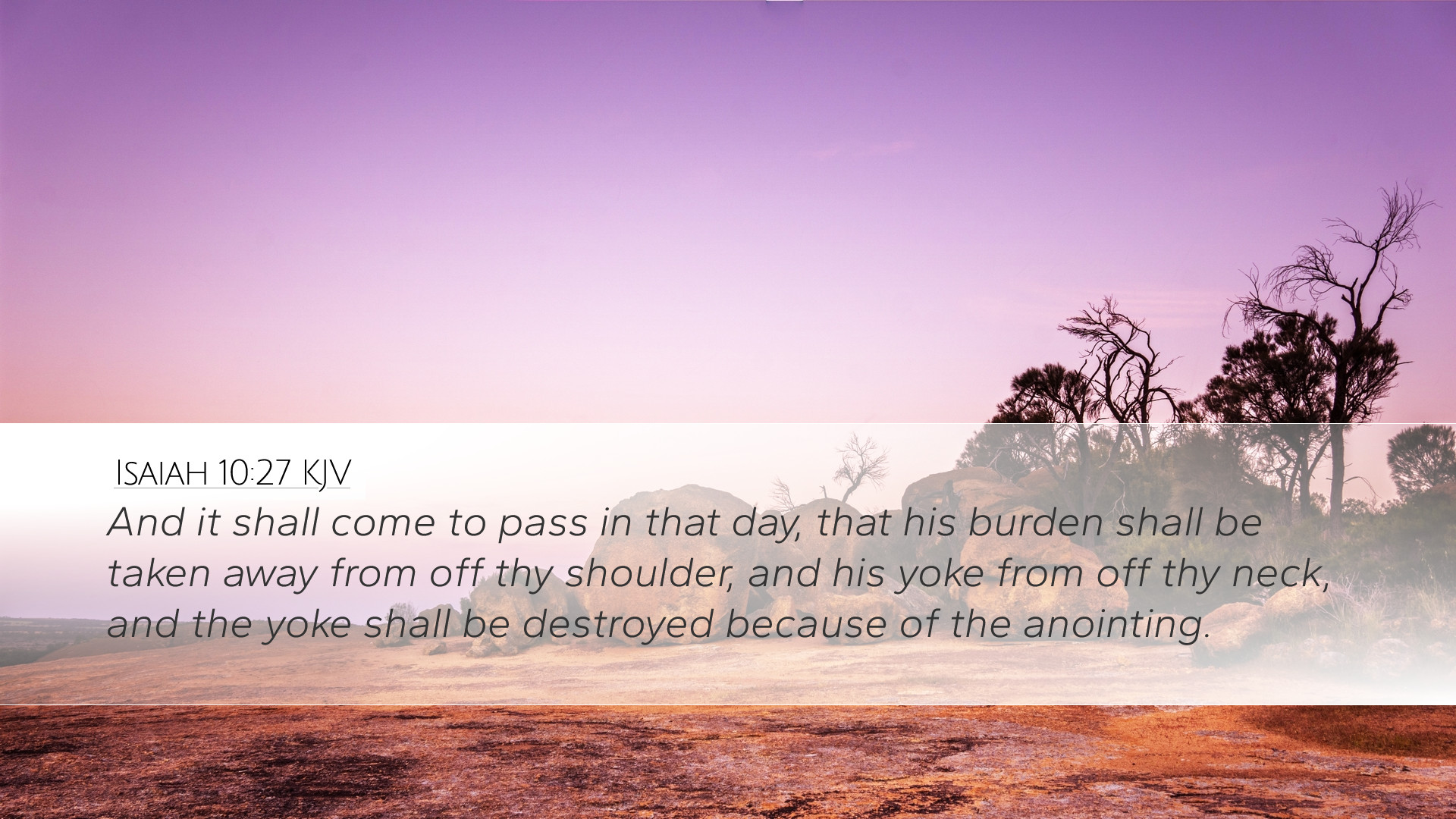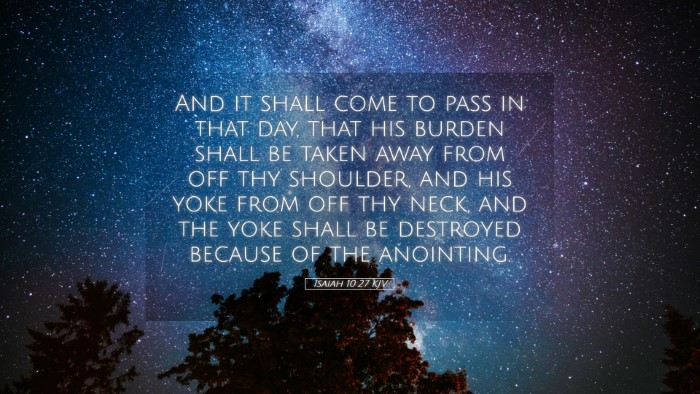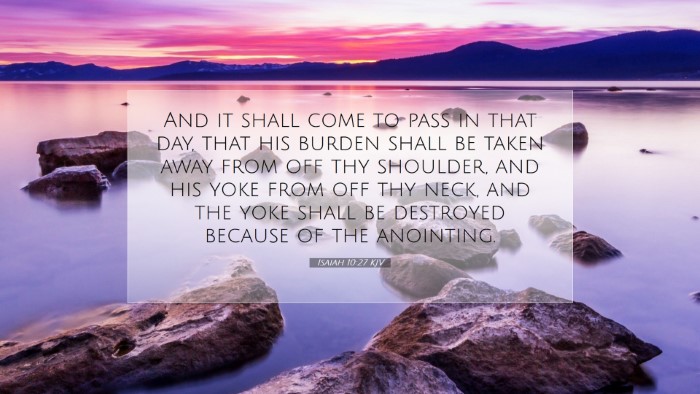Commentary on Isaiah 10:27
Isaiah 10:27 states: "And it shall come to pass in that day, that his burden shall be taken away from off thy shoulder, and his yoke from off thy neck, and the yoke shall be destroyed because of the anointing." This verse is fundamentally a promise of liberation, contrasting the oppressive influence of the Assyrian Empire with the redemptive power of God.
Contextual Overview
To fully appreciate this verse, one must consider its context within the Book of Isaiah. This prophetic book speaks extensively about judgment and redemption. Isaiah prophesied during a time when both the northern kingdom of Israel and the southern kingdom of Judah were facing severe threats from surrounding nations.
In chapter 10, Isaiah addresses the Assyrian invasion, which serves as an instrument of judgment against Israel for their transgressions. However, the passage also assures the faithful remnant that God will not abandon them and will ultimately bring liberation and restoration.
Analysis of Key Phrases
- "In that day": This phrase often refers to a period of divine intervention. It hints at the coming of God's salvation and acts as a marker for the eschatological fulfillment that is central to prophetic literature.
- "His burden shall be taken away": Here, the burden symbolizes the heavy oppression and trials caused by Assyrian rule. The promise indicates a reversal of fortune, where God alleviates the sufferings of His people.
- "Yoke from off thy neck": The term 'yoke' suggests bondage and servitude. In biblical metaphor, it represents the weight of sin, oppression, or external domination. The promise signals freedom and restoration of autonomy for Israel.
- "The yoke shall be destroyed because of the anointing": This final phrase underscores the power of God's Spirit or divine empowerment, which is often associated with anointing in the Scriptures. The anointing signifies God's presence and intervention.
Theological Insights
This verse encapsulates a rich theological truth regarding God's ability to deliver His people. The promise that burdens and yokes will be removed through divine intervention emphasizes the power of God's grace and mercy.
Matthew Henry's Commentary
Matthew Henry reflects on this verse, emphasizing that it serves as a reassurance to the Jewish people during their time of distress. He notes that the 'burden' of Assyrian oppression was not merely physical but also spiritual, as Israel struggled under the weight of their own iniquities. Henry points out that the deliverance referenced in this verse represents not only a temporal salvation but a foreshadowing of Christ's ultimate redemption of His people.
Albert Barnes' Commentary
Albert Barnes contributes to the interpretation by noting the significance of the "anointing." He explains that this anointing refers to the Spirit of God that empowers believers for deliverance. Barnes asserts that the promise extends beyond the immediate context; it finds fulfillment in Jesus Christ, who breaks the chains of sin and oppression for all believers. He emphasizes that the true anointing leads to freedom and restoration.
Adam Clarke's Commentary
Adam Clarke elaborates on the destruction of the yoke, relating it to the hope and future empowerment of God’s people. He mentions that this prophetic assurance is a significant encouragement to those who feel trapped by sin or external oppression. Clarke also emphasizes the role of the Messiah, highlighting that through His work, true liberation is experienced both spiritually and socially.
Applications for Pastors and Theologians
Isaiah 10:27 offers several applications that pastors and theologians may consider:
- Message of Hope: The verse should be a cornerstone in preaching about divine deliverance. It reassures the congregation that no burden is too heavy for God to lift.
- Understanding God's Anointing: The emphasis on the anointing invites deeper exploration into the ministry of the Holy Spirit. It challenges leaders to seek the empowerment of the Spirit to break the yokes of bondage in their communities.
- Pastoral Care: This text can guide pastoral counseling, reminding caregivers that God works to remove burdens, not just at a spiritual level but also in the practical realms of life.
- Eschatological Significance: The prophetic nature of "that day" invites discussions around the implications of eschatological hope and what it means for the church today.
Conclusion
Isaiah 10:27 serves as a profound proclamation of God's redemptive power and unyielding faithfulness to His people. It reassures believers of their future liberation and emphasizes the importance of seeking divine assurance through the anointing of the Holy Spirit. This verse encapsulates a promise that resonates through generations and invites believers to cling to hope in the face of adversity.


